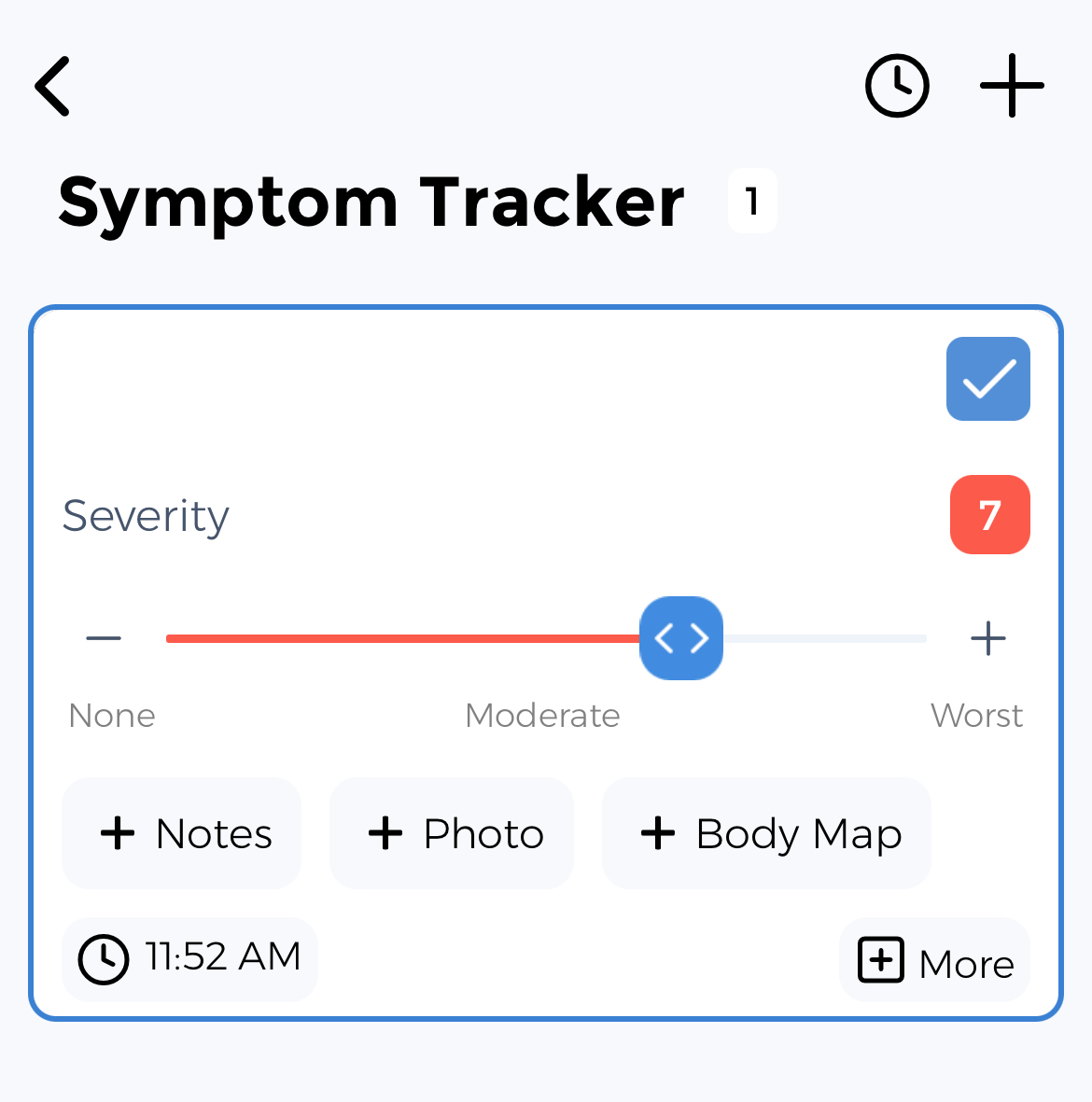ADHD Symptom Tracker: Your Health Assistant
Living with ADHD means dealing with inattention, hyperactivity, impulsivity, and more. But here's the truth: Data is your most powerful tool. Every logged symptom reveals patterns—so you can take informed action.
Attention Deficit Hyperactivity Disorder affects attention, self-control, and activity levels. Tracking focus, task completion, and impulsivity helps manage symptoms.
Key ADHD Symptoms You Should Track
Struggling with symptoms like these? Tracking them reveals patterns, triggers, and how they impact your daily life.
Inattention
Hyperactivity
Impulsivity
Disorganization
Poor time management
Forgetfulness
Emotional dysregulation
Track Your ADHD Treatments
Tracking how these common treatments affect your symptoms can help you and your healthcare provider optimize your care plan:
Our tracker helps you monitor when you take medications and how they affect your symptoms over time.
Standardized ADHD Assessments
Complete these evidence-based assessments in the App to measure your severity and monitor your progress:
⚡ Knowledge Is Your Superpower
The difference between feeling overwhelmed by ADHD and feeling in control starts with data. When you track your symptoms, you transform uncertainty into clarity. Every data point brings you closer to understanding your unique patterns.
It's free to try for anyone—whether you're managing your own condition, supporting a child, helping an aging parent, or assisting a partner. Our tracker adapts to your specific role in the health journey.
How the CareClinic ADHD Symptom Tracker Adapts to Your Needs
Adults
Caregivers
Parents of Children
Young Adults
Your Complete ADHD Management Toolkit
Uncover Patterns & Insights
Map your ADHD symptoms like a detective solving a case.
Understand Your Medication's Impact
Turn guesswork into strategy. See how treatments affect your well-being with clear health insights.
Objectively Measure Your Progress
Use clinically validated tools to objectively measure your progress.
Other Tools You May Like...
Plus 4 more specialized tracking tools available
Access All Tracking ToolsAlso Supports Other Conditions Like
Generalized Anxiety Disorder Tracker
Generalized Anxiety Disorder warriors use our tracker to monitor excessive worry, restlessness.
Major Depressive Disorder Tracker
Major Depressive Disorder warriors use our tracker to monitor persistent sadness, loss of interest.
Insomnia Tracker
Insomnia warriors use our tracker to monitor difficulty falling asleep, waking during the night.
Autism Spectrum Disorder Tracker
Autism Spectrum Disorder warriors use our tracker to monitor social communication difficulties, repetitive behaviors.
Success Stories from Our Community
"The patterns this tracker revealed about my ADHD were surprising. I realized that stress affected my disorganization more than I'd thought possible, and that knowledge alone has helped me slept better than I had in years."
"After struggling with ADHD symptoms for years, this tracker helped me felt in control for the first time. When I could barely get through the day, I now feel like I have a secret weapon."
Take Control of Your ADHD Journey
Transform from feeling like a passive patient to becoming an informed self-advocate. Join thousands who've discovered new insights about their condition.
Designed by people who understand the daily challenges of managing chronic conditions, we're here to support you and your ❤️ ones.
Download Your ADHD Tracker NowYour Data is Protected
Private & Secure
HIPAA Compliant
GDPR Compliant
Never Sell Data
Your data is yours: You get full control over who can view your information. CareClinic keeps all your data secure and encrypted.
References based on studies by:

